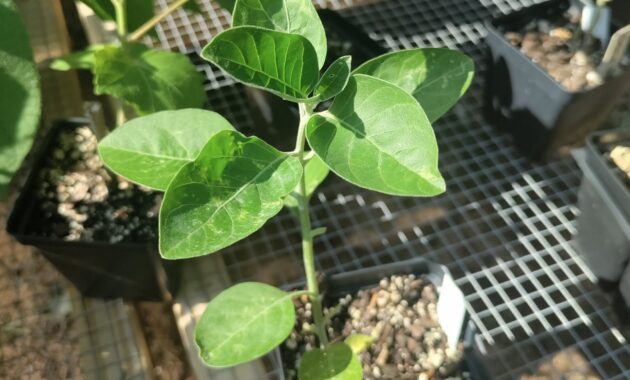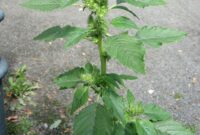
Ashwagandha, often hailed as “Indian Ginseng,” is an ancient Ayurvedic herb renowned for its myriad health benefits. This versatile plant has been used for centuries to manage stress, boost immunity, and improve overall well-being. Let’s delve deeper into the world of Ashwagandha.
What is Ashwagandha?
Ashwagandha (Withania somnifera) is a small shrub with yellow flowers and red berries. It’s native to India, North Africa, and the Middle East. The plant’s roots are the most commonly used part, typically dried and powdered for various applications.
Health Benefits of Ashwagandha
Ashwagandha is a powerful adaptogen, meaning it helps the body adapt to stress. Here are some of its key health benefits:
- Stress Reduction: Ashwagandha can significantly reduce stress and anxiety levels by regulating cortisol, the stress hormone.
- Improved Cognitive Function: It can enhance memory, focus, and overall cognitive performance.
- Boosted Immunity: Ashwagandha strengthens the immune system, making it better equipped to fight off infections.
- Increased Energy Levels: It can help combat fatigue and boost energy levels.
- Better Sleep Quality: Ashwagandha can improve sleep quality by reducing insomnia and promoting restful sleep.
- Enhanced Fertility: It can improve fertility in both men and women by increasing sperm count and quality in men and regulating hormones in women.
- Muscle Growth and Strength: Ashwagandha can help increase muscle mass and strength, particularly when combined with resistance training.
- Anti-Inflammatory Properties: It possesses potent anti-inflammatory properties that can help reduce inflammation throughout the body.
- Antioxidant Effects: Ashwagandha is rich in antioxidants that protect cells from damage caused by free radicals.
How to Use Ashwagandha
Ashwagandha is available in various forms, including:
- Powder: Ashwagandha powder can be added to smoothies, shakes, or water.
- Capsules: Ashwagandha capsules are a convenient way to consume the herb.
- Extract: Ashwagandha extract is a concentrated form of the herb that is typically more potent.

Dosage
The appropriate dosage of Ashwagandha can vary depending on individual factors and the specific health condition being addressed. It’s always best to consult with a healthcare professional before starting any new supplement, including Ashwagandha.
Side Effects
While Ashwagandha is generally safe for most people, some potential side effects include:
- Upset Stomach: In some cases, Ashwagandha may cause digestive issues like diarrhea or upset stomach.
- Drowsiness: Ashwagandha can cause drowsiness, so it’s best to avoid taking it before driving or engaging in activities that require alertness.
- Allergic Reactions: People with allergies to nightshade plants may experience allergic reactions to Ashwagandha.
Cultivating Ashwagandha
If you’re interested in growing your own Ashwagandha plant, here’s a brief guide:
- Choose a Suitable Location: Ashwagandha thrives in warm, dry climates with plenty of sunlight.
- Prepare the Soil: The soil should be well-draining and rich in organic matter.
- Plant the Seeds: Sow the seeds directly into the soil or start them indoors in seed trays.
- Water Regularly: Water the plants regularly, but avoid overwatering.
- Provide Adequate Sunlight: Ensure the plants receive plenty of sunlight.
- Harvest the Roots: Once the plants mature, harvest the roots by carefully digging them up.

Conclusion
Ashwagandha is a powerful herb with a wide range of health benefits. Whether you’re looking to reduce stress, boost immunity, or improve cognitive function, Ashwagandha may be a valuable addition to your wellness routine. However, it’s essential to consult with a healthcare professional before using Ashwagandha, especially if you have any underlying health conditions or are taking medications.
FAQs
- Is Ashwagandha Safe for Long-Term Use?
While Ashwagandha is generally safe for long-term use, it’s important to consult with a healthcare professional to determine the appropriate dosage and duration of use. - Can Ashwagandha Interact with Other Medications?
Ashwagandha may interact with certain medications, such as sedatives and immunosuppressants. It’s crucial to consult with a healthcare professional to avoid potential drug interactions. - What is the Best Time to Take Ashwagandha?
The best time to take Ashwagandha can vary depending on your goals. For stress reduction and improved sleep, it’s often recommended to take it before bedtime. For energy and focus, it can be taken in the morning. - Can Ashwagandha Help with Weight Loss?
While Ashwagandha isn’t a direct weight loss supplement, it can indirectly support weight loss by reducing stress and improving metabolism. When you’re stressed, your body produces cortisol, a hormone that can lead to weight gain. Ashwagandha’s ability to reduce stress levels can help lower cortisol levels, which may contribute to weight management. - Can Ashwagandha Help with Weight Loss?
While Ashwagandha isn’t a direct weight loss supplement, it can indirectly support weight loss by reducing stress and improving metabolism. However, it’s important to combine it with a balanced diet and regular exercise for optimal results.



